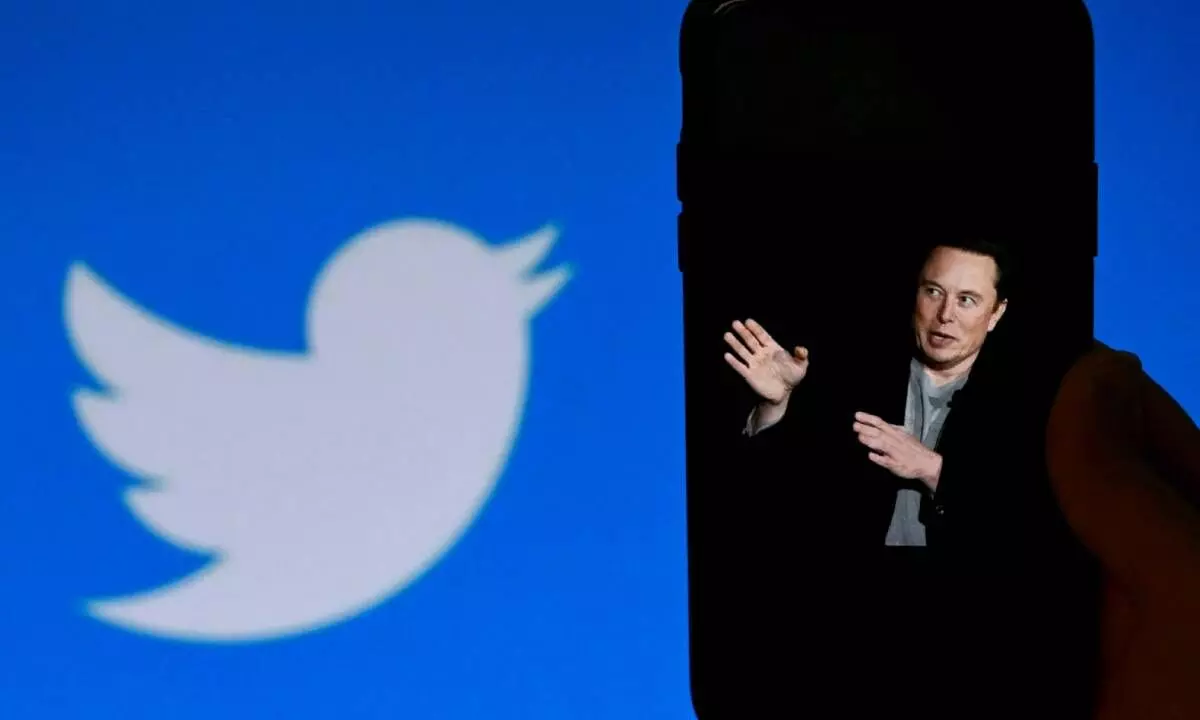Don't write off Twitter just yet
The last few weeks since Elon Musk assumed charge at Twitter on October 27 have been unsettling for employees and users of the microblogging site. His views on content moderation, and the introduction of paid verification raised concerns among users and advertisers, while the warnings of a possible bankruptcy prompted many to wonder if Twitter would soon cease to exist.
image for illustrative purpose

The last few weeks since Elon Musk assumed charge at Twitter on October 27 have been unsettling for employees and users of the microblogging site. His views on content moderation, and the introduction of paid verification raised concerns among users and advertisers, while the warnings of a possible bankruptcy prompted many to wonder if Twitter would soon cease to exist.
Twitter will survive, despite the chaos it is currently experiencing. After all, Musk is known to kick up a storm before rebuilding an organisation.
Tesla all over again? What we are witnessing at Twitter is a replay of what Musk had done when he took the helm at electric carmaker Tesla. Tesla-watchers say that he had responded then to a similar, or worse, crisis with similar undignified layoffs, cost-cutting, and insane working conditions. Musk eventually rebuilt Tesla into the world's leading maker of electric vehicles.
Twitter is not rocket science. While that holds true, how hard could it be to run Twitter? It has a solid engineering platform to sustain over 400 million user accounts. If the number of users falls, as feared, Twitter will not require large additional investments to improve the quality of its service. In contrast, if the user base grows, it will mean Musk has already won the battle. Clearly, the real challenges before Twitter are less about engineering, and more about business and technological innovation, and content policies that can bring advertisers back.
Regulators will bring compliance. A key reason why many fear Twitter's death is because of what Musk, the self-professed 'free speech absolutist', could do. Running Twitter and being an 'absolutist' is impossible for one big reason. Twitter is globally regulated — by well-defined policies in Europe, and by diktat in some countries such as Nigeria. In India, the old Twitter had numerous run-ins with the government and even filed a case against it before the Karnataka High Court challenging orders to take down accounts.
Global regulators will make sure that Musk falls in line in most countries. If you need another clue to be convinced, consider how quickly Musk kicked out rapper Ye (formerly known as Kanye West) for posting a swastika. That is not to say there is no concern over the content. Adult content remains an issue, as does extreme Right-wing posts, including hate speech. Ensuring that content is aligned with the interests of advertisers would also pose challenges.
Speed and innovation. Mainstream media has mostly reported adverse developments at Twitter since Musk took charge. But Musk has kicked off significant business and technological innovation. The subscription plan for a verified badge — dubious as it is — shows a quest for a business model that is less reliant on advertising. Similarly, Musk has ordered end-to-end encryption for direct messages on the platform, and aired a number of other ideas to expand the platform's potential. The speed with which Musk has acted is exemplary, and makes the old Twitter look lethargic.
Look ma, no failures. Musk, with a fortune of around $200 billion, has often been hailed as the biggest technological visionary since Steve Jobs, who introduced Apple to the world. He might even appear to be an even greater genius. Musk started with PayPal, and has turned around Tesla, whose value is singularly important to his status as the world's richest man. He also runs SpaceX, which designs and launches rockets, and eventually plans to establish a human colony on Mars; the
Cash flow is a concern. At $44 billion, Musk has overpaid for Twitter. Given the recessionary trends, he has aired fears of Twitter sliding into bankruptcy. But, as they say in Silicon Valley, only the paranoid survive. Many experts predict a 40 percent hit to advertising into 2024, meaning annual revenue of less than $3 billion. But Musk has made a good start with nearly 50 percent layoffs, saving nearly $1 billion in annual costs. With business innovation, and prudent financial management, Musk could smooth over the costs and expect more. David Kass, a finance professor at the University of Maryland's Robert H Smith School of Business, believes Musk could well attract investments from large funds with the prospect of an initial public offering in three to five years.
What if users flee? With over 400 million accounts and 238 million 'monetisable daily active users' in the second quarter, Twitter is far ahead of 'rivals' such as Mastodon, Post, or India's Koo. The plunge in the market fortunes of Meta, the parent company of Facebook, might serve as a lesson. That crisis had occurred without any loss of users — at least, so far. Twitter is a more unique, and likely more enduring, platform than Facebook.
Even if all else fails, Twitter's death is probably the least likely outcome because United States' 'vulture capitalists', could line up to buy a degraded asset at a bargain. Experts have already marked down Twitter's value. If it slips into bankruptcy or if Musk simply loses interest — all genuine fears expressed by critics — one can count on a number of tech companies and private equity players to make a play for it.

